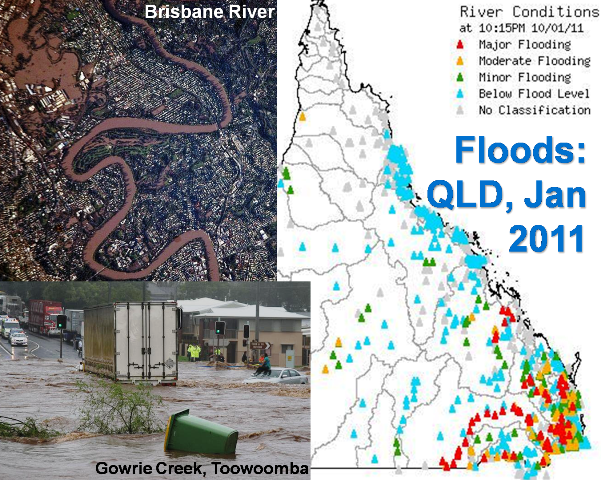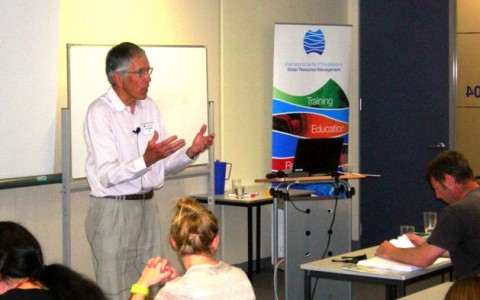Attend any or all days:
– Day 1: Hydrology (Wednesday)
– Day 2: Hydraulics (Thursday)
– Day 3: Field Trip (Friday)
Benefits:
– Understand approaches and methods used by water engineers.
– Learn the basic principles of hydrologic and hydraulic calculations.
– Know how to consult with water engineers and engage with local communities.
– Undertake hands-on practical exercises with full instruction.
– Recognise the data issues when designing hydrologic and hydraulic solutions.
Who Comes:
– 4T Consultants Pty Ltd
– BHP Billiton Iron Ore
– Bureau of Meteorology
– City of Gold Coast
– Glenelg Hopkins CMA
– G-MW
– Logan City Council
– MDBA
– NSW DPI
– Rio Tinto Iron Ore
– RPS Group
– SA DEWNR
– SA Water
– Seqwater
– South East Water
– Sydney Catchment Authority
– TasWater
– WA Water Corporation
– West Gippsland CMA
Hydrology and hydraulics are the cornerstones of modern water engineering and many water-related projects rely on an understanding of the occurrence and distribution of water (hydrology) and the movement of water through our pipe and open channel systems (hydraulics).
On completion of this short course, attendees will have a better understanding of the principles of water engineering theory and why particular design solutions have been proposed. Whatever your particular area of interest, specialising in water can open new career advancement opportunities.
The course will also include an optional day field trip on the last day and will look at hydraulic structures around floodplains and rivers. If you are unable to attend this, simply select the partial course type on your registration below.
Content includes:
Day 1: Hydrology:
- Background to Hydrology
- Rainfall and Runoff Estimations
- Sensitive Flood and Water Management
- Environmental Impacts
- Reservoir Volume Estimation
- Exercises, Case Studies and Discussions throughout the day
Day 2: Hydraulics:
- Hydrostatics
- Closed Pipe System Hydraulics
- Design Forces and Energy Losses in Pipe Systems

- Open-Channel Flow Hydraulics
- Static and Dynamic Water Pressure Design
- Introduction to Drainage Design
- Exercises, Case Studies and Discussions throughout the day
Day 3: Field Trip– various sites throughout the day
- Detention Basins with inlet or outlet channels
- WSUD (Water Sensitive Urban Design) areas
- Urban Wetlands for Flood Mitigation
- Monitoring Station- stream flow, weather and climate variables
- Sewage Pumping Station
- Water Supply Reservoir







